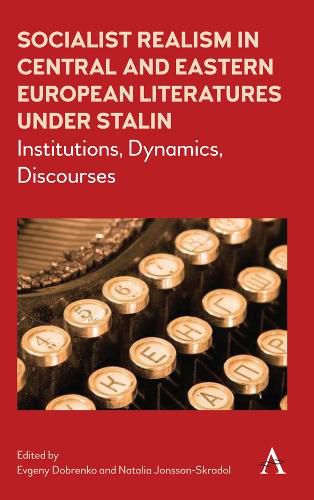Readings Newsletter
Become a Readings Member to make your shopping experience even easier.
Sign in or sign up for free!
You’re not far away from qualifying for FREE standard shipping within Australia
You’ve qualified for FREE standard shipping within Australia
The cart is loading…






Socialist Realism in Central and Eastern European Literatures’ is the first published work to offer a variety of alternative perspectives on the literary and cultural Sovietization of Central and Eastern Europe after World War II and emphasize the dialogic relationship between the ‘centre’ and the ‘satellites’ instead of the traditional top-down approach. The introduction of the Soviet cultural model was not quite the smooth endeavour that it was made to look in retrospect; rather, it was always a work in progress, often born out of a give-andtake with the local authorities, intellectuals and interest groups. Relying on archival resources, the authors examine one of the most controversial attempts at a cultural unification in Europe by providing an overview with a focus on specific case-studies, an analysis of distinct particularities with attention to the patterns of negotiation and adaptation that were being developed in the process.
$9.00 standard shipping within Australia
FREE standard shipping within Australia for orders over $100.00
Express & International shipping calculated at checkout
Socialist Realism in Central and Eastern European Literatures’ is the first published work to offer a variety of alternative perspectives on the literary and cultural Sovietization of Central and Eastern Europe after World War II and emphasize the dialogic relationship between the ‘centre’ and the ‘satellites’ instead of the traditional top-down approach. The introduction of the Soviet cultural model was not quite the smooth endeavour that it was made to look in retrospect; rather, it was always a work in progress, often born out of a give-andtake with the local authorities, intellectuals and interest groups. Relying on archival resources, the authors examine one of the most controversial attempts at a cultural unification in Europe by providing an overview with a focus on specific case-studies, an analysis of distinct particularities with attention to the patterns of negotiation and adaptation that were being developed in the process.